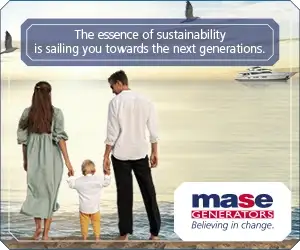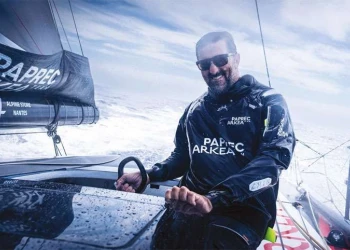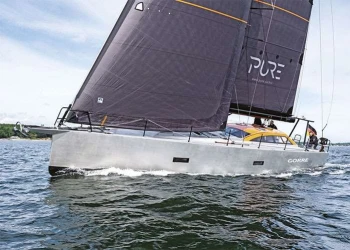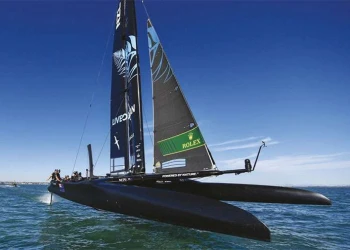
Sea Ventures planning growth for the shorthanded racing community
Sea Ventures planning growth for the shorthanded racing community
The vibrant (and growing) shorthanded racing community in the UK has a plan for further growth, inspired by even greater success in France…
Shorthanded racing is nothing new, particularly in France and the UK. But in recent years the sustained growth in this area of the sport has taken even the pundits by surprise. Among the many enthusiastic amateur single- and doublehanded crews, Sea Ventures’ Nigel Colley has been leading from the front for many years, encouraging other amateur sailors to take the plunge. His efforts and those of his fellow shorthanded devotees have been a big influence. Now, according to Colley, it’s time for the next step.
As the UK agent for Jeanneau, Sea Ventures Ltd is well connected with the shorthanded scene through the success of the Sun Fast range. In fact the two have gone hand in hand. But while Colley and Co have been working hard for years to encourage growth in this segment of sailing they have also kept a close eye on how the broader racing scene has been developing. And while shorthanded sailing has been their key focus, they have also been cultivating ideas around a new style of fully crewed racing by taking a careful look at what people like to do and what might appeal in the future. They believe that this year’s bumper Rolex Fastnet Race provided the perfect example to consider the current mood in the offshore world.
This year's race was the 50th edition so it was always likely to be a big one and come the start it clearly was,’ says Colley. ‘The total number of entries at 472 was the largest ever which included 363 IRC entries. And within the IRC group, 108 were double handed. That is one third of the total IRC fleet, which is pretty amazing.
‘This year’s Fastnet fleet was also a big increase on the numbers for the previous race in 2021. Interestingly it’s not just a UK thing either, around one third of the Rolex Sydney Hobart Race was double handed as well and that is an event which only created a double handed class in the 2021-22 race. So, it’s clear from this alone that the support and enthusiasm for shorthanded sailing is there.
‘The size and type of boats that are popular is another interesting guide for the future too. The bulk of this fleet has formed around a compact range consisting mainly of 32- to 38-footers with IRC ratings from around 1.000 to 1.050. This narrow rating band helps to keep the racing close and therefore fun. In the case of a five-day Fastnet this means a spread of around six hours by the end of the race.’
The evidence for the popularity of shorthanded racing is clearly there and Colley believes that this provides some clear indications for future events. But if you drill down into the data and the results a bit further, he believes there are other clues.
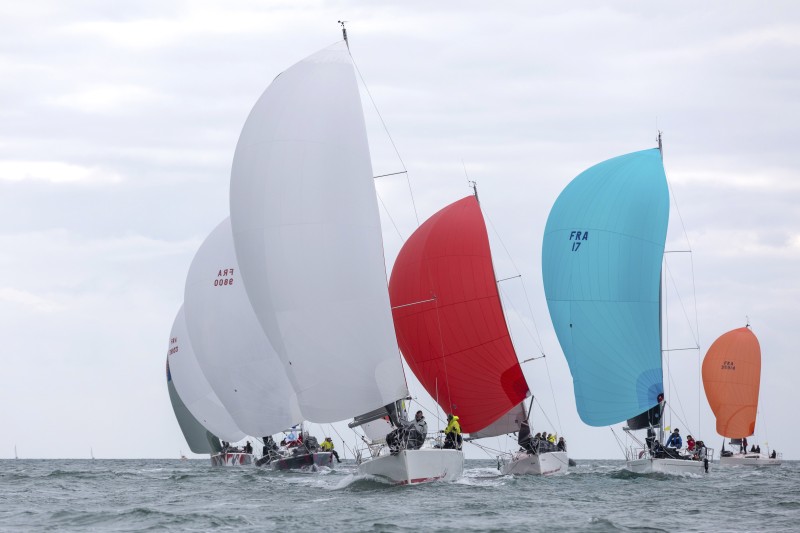
‘In the IRC Double Handed European Championships, the French dominated the results,’ he continues. ‘The British barely got a look-in and when you consider the way that the French racing scene is set up it becomes easier to see why.
‘For starters, as we know they have a stronger shorthanded scene from the Mini Transat boats, through the Figaro class, the Class40s and ultimately the Imocas. But what is striking is the number of club racers in France that line up alongside the big guns in a long list of local events along the Brittany coast from Lorient to La Rochelle. They get together, form groups, train together and share resources and generally hang out together in order to learn more. For them this is nothing new.
‘The racing often involves coastal series that have a mix of inshore and offshore racing. One reason these series are popular in France is because many of them have a social element too.
‘So, having taken part in some of these events we have been looking at how they might be replicated elsewhere. We have been working on a tour style event in the English Channel. The plan is to run a series of offshore and coastal point-topoint races on both sides of the Channel over the course of a week. The event would include both weekends which means that we could get a nine-day event with people only having to take five days off work. Crew changes would be allowed, which would make it easier for teams to compete and we would engage local yacht clubs for the socials.’
But Colley’s plan goes further than simply arranging racing for the double handed teams.
“One of the new areas where we’ve seen steady growth over recent years is in what we believe is the new fully crewed configuration with teams of four. This has been very popular in some of the local events we have run, especially for roundthe- cans racing where double handed can be pretty tricky at times. Last year’s Jeanneau Sun Fast Cup in Cowes proved very popular with teams of four. It works because many teams find it far easier to round up another couple of friends rather than a weather rail full of crew.
On top of this, boats in the mid thirtyfoot size range that have proved popular for double handed racing lend themselves well to a crew of four. In fact, some of the new breed are being designed with this specifically in mind. Also, the reality is that when it comes to the accommodation, most boats of that size can only cater for four anyway, so it makes sense to have this as a limit if you’re racing point-to-point and staying on board.
‘So, our plan is to have a fully crewed class for those sailing four-up, racing alongside the double handed class. This is also one of the reasons why it makes sense to allow boats to change crews during the week in order to make it easier for teams to take part.’
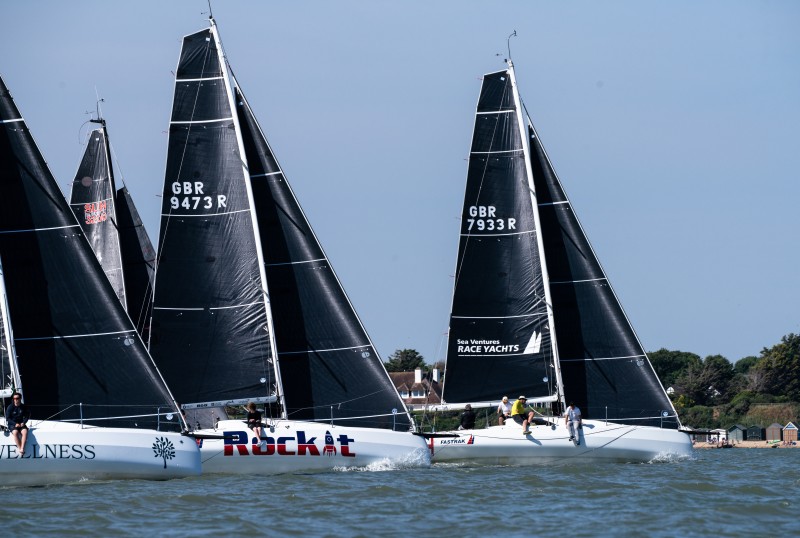
With a plan to have a Channel-based event at the heart of the summer season, Sea Ventures’ plans are to develop individual races and events on either side.
‘With the fully crewed teams in mind we are also looking into creating a spring/ early summer season along with an autumn/winter series that would run races on alternate weekends,’ says Nick Bonner, Sea Ventures’ racing manager. ‘Here, the emphasis would be on day racing. The fleet would still do point-to-point racing but it would be over a weekend where there would be a stopover on the Saturday night before racing back on the Sunday. Once again we would be working with clubs to ensure that there is a social part to each weekend. We believe that people do want to meet up and swap notes.
‘For the racing, we also believe that there’s a growing appetite for something other than the endless windward-leewards, something that helps a broader range of boats find their competitive legs and that brings back some of the tactical and boat handling skills in all-round racing.
‘We would also look to produce and distribute the courses ahead of time for some of the races so that people know what will be involved ahead of time and can do their planning in advance. And if some people think that reminds them of the days of Solent Points, we make no excuses because back then in its heyday it worked.
‘The reality is that the racing scene has been evolving and changing all the time and we believe that we should be working with the clubs, classes and style of racing that is popular rather than trying to push people towards a particular format. This involves working with clubs and classes to help build the events that have proved popular by bringing a new or additional fleet,’ he concludes.
It is easy to see how Sea Ventures’ thinking has been influenced by – and converges with – the popular French model. Identifying what is popular and then providing the format for crews to get together is their starting point for a class of boat and style of racing that is undeniably popular.

